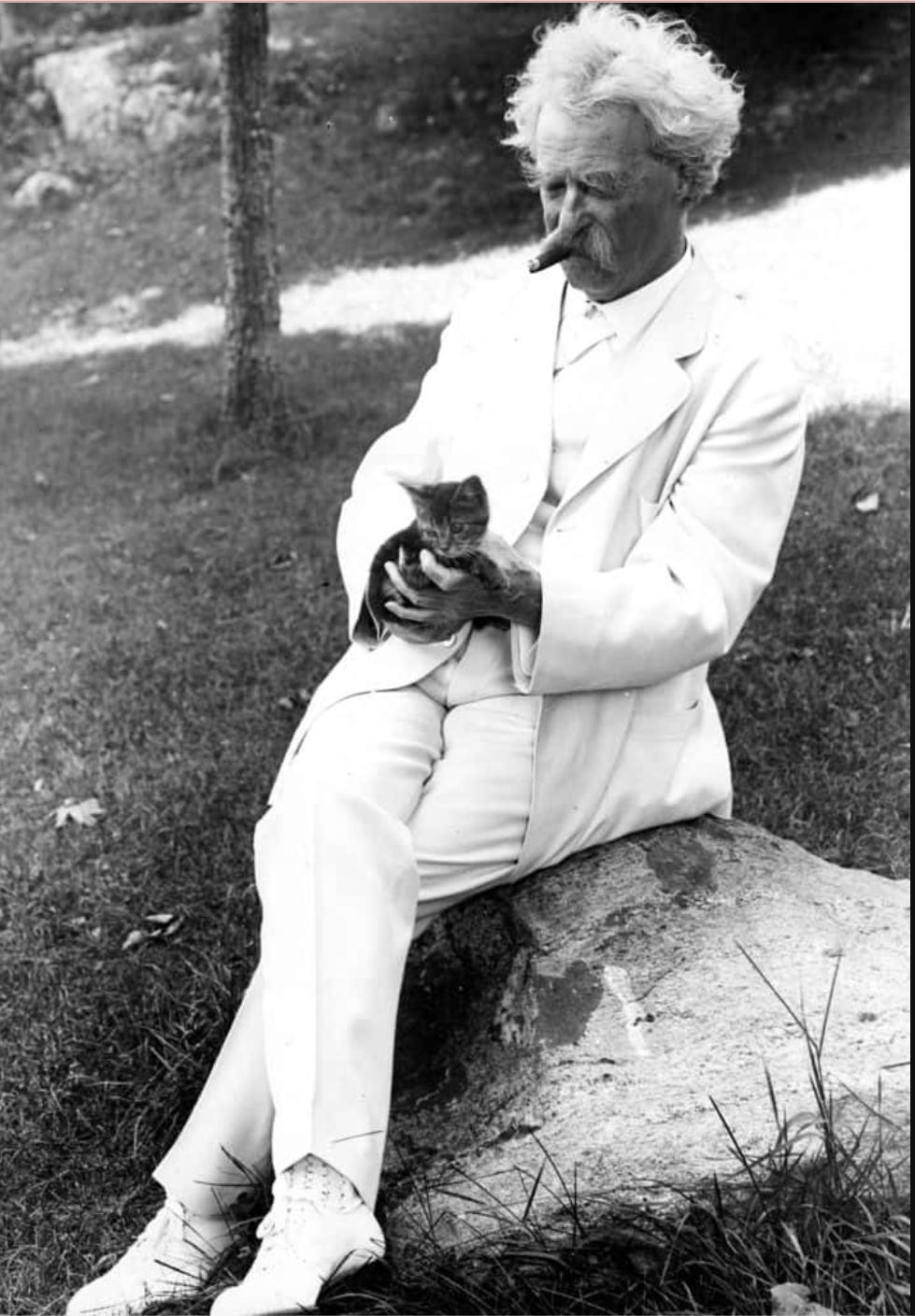We have it on many accounts that Mark Twain was critical of formal education, but his words are often twisted to support varying political views. “I have never let my schooling interfere with my education,” has often been misattributed as a statement made by Twain. The rise of this reposted quote started circulating before the 2008 election with the anti-intellectualism/ populist movement. Remember the Tea Party? Man, that was fun, and we get to repeat the same mistakes in a few months. Can’t wait.
But before this turns into an incoherent meltdown about the current state of U.S. politics, let’s bring it back to our old pal, Mark.
A model Republican or passionate liberal?
Mark Twain represents many different ideologies to different groups of people. Both liberals and conservatives claim him. Liberals like to focus on his abolitionist and feminist views. Conservatives applaud him for his support of free trade. In some ways, that is a power of Twain and the many other historical figures who can’t pop out of the grave and correct people on the discourse. His wit was so great that many wanted to claim him as a symbol of their outlook. The boy who received no formal education after age 11 is the same boy whose works dominate the canon of American literature and the U.S. education system. There’s a beautiful absurdity in that irony.
“Education consists mainly in what we have unlearned.” Mark Twain, 1898
At first glance, this can be interpreted as anti-education, even anti-intellectual, but that would be too easy. Today, when we see movements of people that dismiss and mock education, it appears to be a resistance to learning. Willful ignorance. The word education has an institutional connotation that can cause discomfort. It can be seen as homogeny, but “learning,” is something much more expansive. Learning is growth that can sprout from inside a classroom AND from all forms of life experience.
I have my biases because I come from a family that values higher education. That being said, my greatest learning moments were situations in which I was thrown into a high-stakes mess when failure was not an option. Now that I reflect, this does sound like my grad school experience, so maybe I’m contradicting my own thoughts.
But so did Mark.
“My land, the power of training! of influence! of education! It can bring a body up to believe anything.” - Mark Twain, A Connecticut Yankee
In the same piece, he states:
“Cauliflower is nothing but cabbage with a college education.” - Mark Twain, A Connecticut Yankee
So Twain was basically saying that if you gain an education, you too, can become a fancy cabbage. I do love a good cabbage dish...
Beyond the absurdity, these quotes leave us with a lot of room to project whatever we want onto the man. When I absorb these words, I see someone with a profound respect for learning AND a cynical perspective on the education system. This cynicism isn’t his alone; liberals and conservatives have their complaints about education in this country (but for extremely different reasons.) My bias projects that Twain is criticizing the rigid structures within formal education systems. In that case, Mark Twain was actually pro-education contrary to populist belief.
Paulo Freire coined the term “the banking model of education,” referring to a system in which the teacher bestows their knowledge to the student and the student receives it without question. There is minimal room for discussion. It is as if the student is a bank that accumulates one fact at a time. Although the banking model of education was a concept that was discussed almost 60 years after Twain’s death, one could see Twain having a few things to say about this no-questions-asked, depository education system that runs deep within our societal structures. Of course, many institutions and teachers are developing a more collaborative path of education, emphasizing critical thinking and not simply memorizing facts, but it’s clear that this rigid and hierarchical legacy is not helping our cause.
Learning by route is not conducive to critical thinking. With this skill being ignored, we are left with a population that moves through the world with black-and-white thinking and no room for flexibility. As a society, we are incapable of separating fact from opinion, identifying fake news, and even questioning how bias impacts the information we receive. When one goes on the internet for three seconds, its a mind-numbing mess of confusion and vitriol.
But what does Twain mean when he says “unlearned?”
“Education consists mainly in what we have unlearned.” Mark Twain, 1898
Unlearning is a major topic when we discuss social issues today. One must unlearn, their prejudices, one must unlearn a bad habit, but one must also unlearn an inflexible mindset. The gist is that we need to deprogram the way of thinking that we’ve been strictly taught.
Many of us who’ve received formal education will report that there is a significant emphasis on learning the rules. After all “one must learn the rules and then learn to break them.” I was taught to never start a sentence with “but,” or “and.” But then I grew up and started a blog and did whatever I wanted!
This is not to debase formal education but to self-empower. We are the ones that need to gather our tools and our rules, and we are the same ones that have the most unlearning to do. Let’s channel Mark Twain’s value of learning and his skepticism of rigid educational structures. And most of all, don’t just be a cabbage with a college education.
For more reading that dissects education and Twain’s belief systems:
An Analysis of Mark Twain's Concepts of the Child and Education





